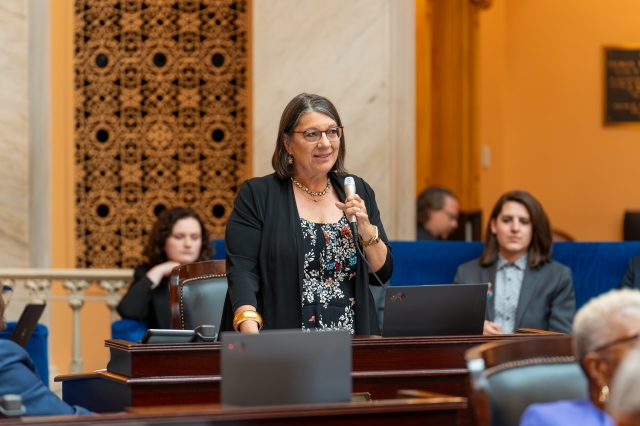Antonio Condemns Senate Budget

Today, Senate Democratic Leader Nickie J. Antonio (D-Lakewood) issued the following statement after the Ohio Senate voted to pass their version of House Bill 33, the state operating budget.
“This budget hurts everyday Ohioans while rewarding the wealthy and well-connected,” said Antonio. “The Senate’s proposal relies on failed tax strategies at the expense of Ohio’s economic security for families and public education. No amount of Christmas in July or August shopping spree will help forge long-term solutions to ordinary people’s economic challenges. It leaves many everyday Ohioans to struggle and fend for themselves.
“We chose not to offer any floor amendments because this budget is so fundamentally, and foundationally, flawed that no floor amendments could redeem it.”
As passed by the Senate, House Bill 33 expands vouchers, slashes funding for social services, and cuts taxes in a way that disproportionately and unfairly benefits Ohio’s wealthiest residents. Additionally, it contains a number of controversial policy provisions, including:
- Senate Bill 1, which would transfer almost all the powers of the state Board of Education, comprised primarily of elected members, to a new executive agency;
- Senate Bills 83 and 117, which would dictate what may be taught in Ohio’s institutions of higher education and infringe on the collective bargaining rights of their faculty; and
- Senate Bill 21, which would allow the Senate President and House Speaker to hire outside legal counsel for whatever reason at any cost.
“This budget erodes the academic excellence of our public institutions of higher learning and imposes conservative ideology at the expense of diversity of thought debate,” said Antonio. “It would put Ohio on a path that is contrary to developing the global leaders of tomorrow by turning us backward. The Senate budget is out of balance, out of touch and leaves out too many everyday Ohioans. We will continue the work to improve the budget in conference committee.”
House Bill 33 now heads to the Ohio House. If the House does not concur with the Senate’s changes, the bill will go to the conference committee.



